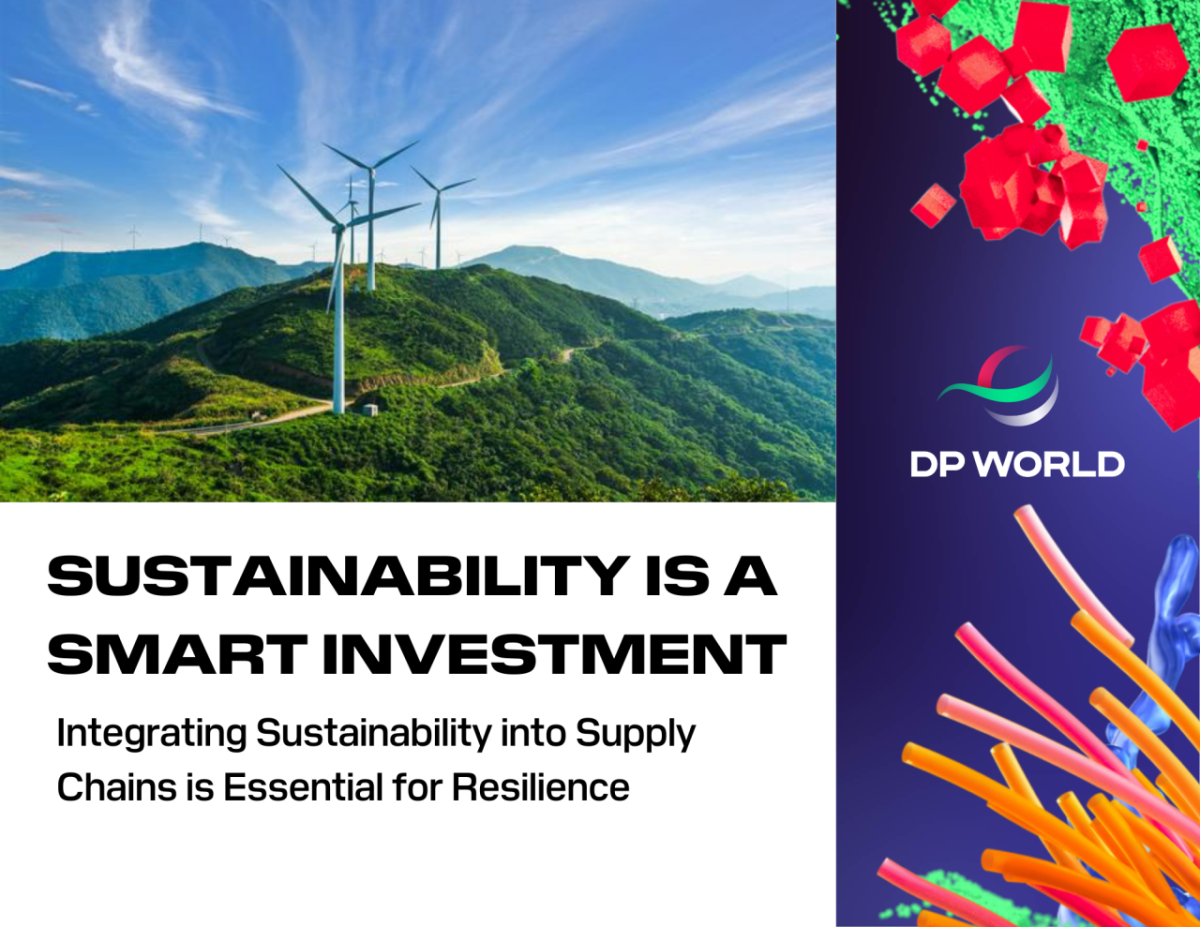Why Sustainability Is the Smartest Investment in an Uncertain Trade Landscape
As global disruptions continue, integrating sustainability into supply chains is proving essential for resilience, efficiency, and long-term business value.

Despite today’s shifting geopolitical and economic landscape, the case for investing in supply chain sustainability remains stronger than ever, according to a recent article published in Supply and Demand Chain Executive.
In her article, “The Business Case for Sustainability Despite Global Uncertainty,” Sarah Mouriño, head of sustainability for DP World Americas, makes a compelling argument that sustainability is not a luxury but a necessity for companies aiming to build efficient, safe, and resilient operations.
“Uncertainty might drive decision making, but it does not change the facts: companies that invest in sustainability will continue to see benefits such as improved efficiency, creation of business value, and market access growth,” Mouriño writes.
Citing the Trade in Transition report by Economist Impact and DP World, the article highlights how global companies are pivoting toward non-aligned trade partners to enhance resiliency. In this context, sustainability becomes a strategic imperative, not just an environmental one. Companies that invest in workforce development, women’s participation, and social well-being are also contributing to long-term business competitiveness.
Mouriño emphasizes the financial risks of ignoring sustainability. Climate-related supply chain disruptions could cost the global economy up to $24.7 trillion by 2060. Meanwhile, companies that act now can reduce operational risks, stabilize energy costs by investing in renewables, and improve customer trust and brand value.
“Sustainability is a basket of diverse disciplines, most of which cannot be packaged into a commercial offering,” she states, calling for a broader view beyond carbon metrics.
Ultimately, the article challenges businesses to move beyond short-term uncertainty and instead view sustainability as a core strategy to drive innovation, protect against risk, and secure long-term profitability. Integrating sustainability across all business functions will not only support resilience, but position companies to thrive in an increasingly complex global trade environment.
Read the full article here: The Business Case for Sustainability Despite Global Uncertainty

